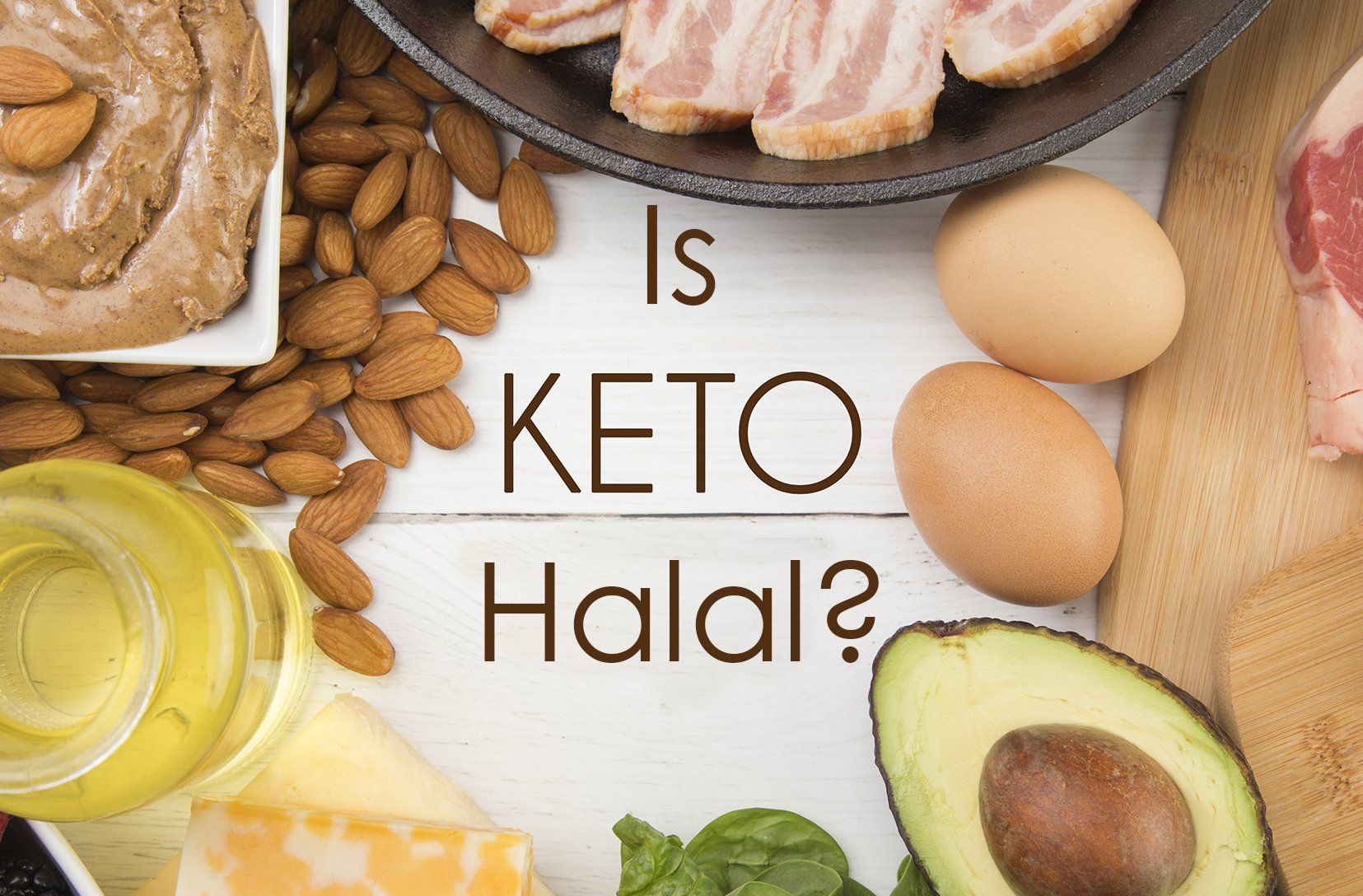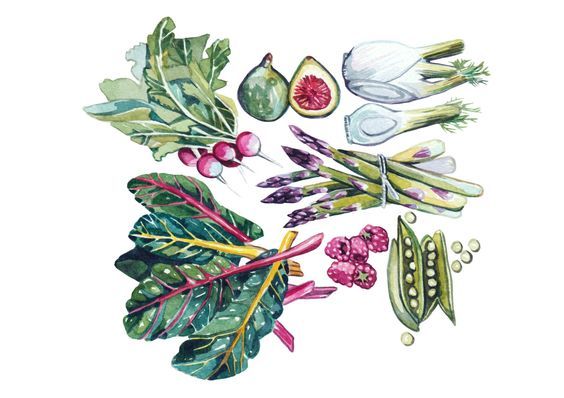1-877-HALAL-WW (+1-877-425-2599)
Blog Post
How to Make your Keto Diet Halal-Approved
Sara Shannan • Jul 08, 2020
Keto from the Halal Perspective

By now, you must have heard of the new dietary lifestyle known as "keto" or the "ketogenic" diet, or you may have unknowingly stumbled upon some keto-approved products during your grocery errands. You may also be well acquainted with the term 'halal' – an Arabic word used to denote that which Muslims are allowed to consume. Halal also carries the connotation of 'healthy', 'balanced', and 'humane'. It would be relatively easy to see why these two concepts can live harmoniously, however, halal dietary laws are governed by scripture which are timeless, while new diets and health regimes, such as keto, are subject to change. Additionally, some argue that keeping a keto diet can't be halal, because Muslims should not restrict themselves from what is lawfully permissible.
It is important to understand the arguments, and the solutions so that the bounds of halal are never breached.
So let's delve right into the topic!
What is Keto?
Following a keto diet is a popular way to diet, with many fitness models and bodybuilders who swear by it religiously. So what is Keto and how does it work? Keto is a low-carb, high-fat diet where consumption of carbohydrates is significantly reduced and replaced with fats. This reduction in carbohydrates puts your body in a metabolic state known as ketosis. In other words, your body becomes incredibly efficient in burning fat and generating energy.
Over the years, the ketogenic diet has gained a significant number of supporters partly due to its many alleged health benefits; these include lower blood sugar and insulin levels, weight loss, increased metabolism, and profound neurological benefits.
Note: The ketogenic diet is not suitable for everyone. Consult your doctor and seek professional guidance before you make any drastic changes to your diet.
In order to commit to a ketogenic diet, there are some rules you need to abide by. On the one hand, certain foods or ingredients have to be reduced or eliminated from your diet, including:
- Starchy vegetables and fruits that contain high levels of sugar
- Grains such as cereal, crackers, rice, pasta, bread, and whole wheat pasta
- Low-fat products (they are highly processed)
- Honey, syrup, and all types of sweeteners
- Unhealthy fats (mayonnaise, processed vegetable oils, etc.)
- Beans and legumes
- Baked goods
On the other hand, the majority of your meals will surround different types of food that include:
- Red meat
- Fatty fish (salmon, trout, tuna and mackerel)
- Eggs, butter, cream, and cheeses (unprocessed cheese, preferably)
- Healthy oils such as coconut oil, avocado oil, or extra virgin olive oil
- Low-carb vegetables (peppers, onions, tomatoes, etc.)
- Assorted nuts and seeds
- Avocadoes
As it seems, a ketogenic diet can be overwhelming at first, but once you get the hang of it, it won't be as tough. Now, the question is, can you do both halal and keto?
The Conflict Between Keto and Halal
As mentioned in the opening, some argue that maintaining a keto diet is not halal, because Muslims should not restrict themselves from what is permitted. The argument is supported by the statement in the Qur'an, where Allah SWT says: "[66:1] "...why do you prohibit [yourself from] what Allah has made lawful for you...?"
It would appear from this that the two certainly cannot coincide. If we take the snippet of text in isolation, it does seem to be the case. This rationale, however, is problematic. Our deen must be taken holistically, and we must not cherry pick verses, or ignore others relevant to the topic.
When approaching any legal discussion, all of the facts must be considered. When we do this, we find a much different picture being represented.
The Prophet (ﷺ) said, "I do not eat lizard, but I do not prohibit its eating." [Reference : Sahih al-Bukhari 5536]
The Prophet (ﷺ) never criticized any food (he was invited to) but he used to eat if he liked the food, and leave it if he disliked it. [Reference : Sahih al-Bukhari 5409]
From the above, we find a more complete story regarding the topic. It is permissible to have a preference for foods that one may enjoy, and to refrain from those foods which one does not like.The Prophet used to love to eat gourd, and loved vinegar as a condiment. The Prophet (ﷺ) said: "What an excellent condiment vinegar is." [Grade : Sahih (Darussalam) Reference : Jami` at-Tirmidhi 1839]
It was narrated that Anas said: “The Prophet (ﷺ) loved (to eat) gourd.” [Grade : Sahih (Darussalam) English reference : Vol. 4, Book 29, Hadith 3302]
Those who argue that Halal and keto diets cannot mix are rebutted by the example of the our prophet. It must also be noted, however, that one should not make that which Allah SWT has made halal into something haram, nor make that which He has made haram into something halal. In essence, this means that the permission relies upon the niyyah, or 'intention'. If ones intention is to be healthy by refraining from carbohydrates, then this is also Halal. But if ones intention is to make it forbidden because they believe it is wrong for people to eat carbohydrates, then this is not halal. In essence, the argument all depends upon your perspective.
How To Incorporate Keto Into A Halal Cultural Diet
Load Up On Proteins
So you've decided to embark upon the keto path, and need to figure out how to manage it properly in terms of your cultural diets. The easiest way to do this is to make proteins the center of your plate. Instead of pasta, incorporate more lean meat such as a grilled piece of fish or roasted chicken. For a meat-free option, bulk up on your leafy greens, such as kale, lettuce, arugula, spinach, etc., and top it off with your favorite nuts and seeds for an added crunch.
Be aware of side dishes
Be aware of side dishes
Side dishes may seem innocent and harmless, but it is often loaded with carbohydrates. Falafel, hummus, baba ganoush, bread, and fries are everyday side dish staples, but they are poor keto options. As delicious as they are, try a light tossed salad or your favorite steamed vegetables. Not only are they low in carbohydrates, but they will also help you feel fuller and satisfied. And you can eat as much as you like!
Don't be afraid of fats
One good thing about keto, as some might claim, is that most sauces and unprocessed cheeses are keto-approved. Moreover, avocado, extra virgin olive oil, and coconut oil are healthy cooking bases and additions that you can add to spruce up your salad. These fats can spice up your meal without feeling like you're on a monotonous diet that you will ditch in less than a week. So, don't be scared to load up on the hot sauce in your Halal meal.
In conclusion, it is important to be conscious of ones intention when considering any dietary restriction, whether that be carbohydrates, or meat. What is for sure is that Muslims are encouraged by our religion to eat less in general. We should still steer clear of eating anything in excess and endeavor to embark upon a healthy lifestyle that consists of that which is halal and tayyib.
The Prophet (ﷺ) said:
"No man fills a container worse than his stomach. A few morsels that keep his back
upright are sufficient for him. If he has to, then he should keep
1/3 for food, 1/3 for drink and 1/3 for air." [Jami` at-Tirmidhi 2380 - Authentic]
Disclaimer: The content of this article should not be taken as medical advice, and you should always consult your doctor before starting any diet.
Sara Shannan • Jul 08, 2020
Share
Tweet
Share
Mail











